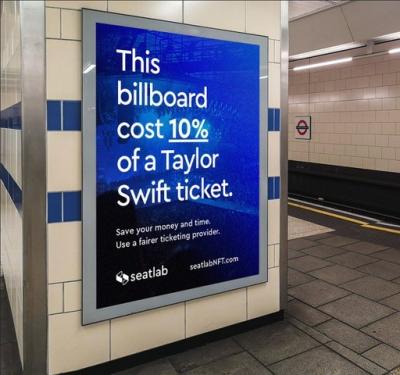If you’re a Taylor Swift fan — or have been anywhere near social media in the last two weeks — you know that ticket presales for the pop superstar’s recently announced Eras Tour via Ticketmaster didn’t exactly go smoothly.
Although Ticketmaster reported that it sold a record number of tickets — 2 million — during the Verified Fan presale, the process was a disaster for many fans, who experienced issues with the queue or weren’t able to purchase tickets if they finally did make it through.
Over 3.5 million fans registered for the Verified Fan presale, according to Ticketmaster, and only around 1.5 million received codes to access the sale. However, the site experienced far more traffic than anticipated on the day, including from fans who didn’t have codes as well as bots, and the public sale scheduled for later that week ended up being cancelled.
Swift has since released a statement indicating that her team had tried to confirm that the platform would be able to handle the demand, and they were assured that it could — which clearly turned out not to be true.
The issue with Ticketmaster is complex and largely stems from its lack of competition, which has been a concern since it merged with entertainment giant Live Nation. The Swift debacle has prompted a Senate antitrust hearing, which has yet to be scheduled.
However, beyond incurring potential regulatory action, Ticketmaster’s failures once again highlight the fundamental issues with traditional ticketing models — issues that several up-and-coming platforms are aiming to solve to provide a better and more streamlined experience for fans and artists.
Ryan Kenny, CEO of one such NFT ticketing platform, SeatlabNFT, remarks that he and his team weren’t surprised by what happened as these types of issues are unfortunately a common occurrence these days.
“The problem is more deep-rooted than this latest episode; it's a systemic failure facilitated by the big ticketing platforms,” he says. “The issues surrounding Taylor Swift's Eras Tour have just pushed it back into the public domain. In a world where technology has undoubtedly improved the user experience in so many sectors, the ticketing industry has to evolve to answer the discontent and general anger event-goers have towards it. This is just further confirmation that change is needed.”
One way that blockchain technology and NFTs help avoid these negative ticketing experiences is by removing the incentive for scalpers by regulating secondary market sales. SeatlabNFT, for example, enables sellers to set royalty splits and price ceilings on secondary sales, which presents two benefits: the artist and/or original ticket issuer can continue to generate revenue from resales, and in turn, scalpers’ profit generation ability is significantly decreased.

“This control over the secondary resale market is unprecedented, only possible thanks to blockchain/NFT technology, and can be used to disincentivise touts and their bot armies from targeting certain events,” explains Kenny.
In addition, NFT tickets are locked to a user’s mobile device, so scalpers would need a new device and phone number for each ticket they purchase. “These two things combined not only restrict the ability of scalpers and bots to operate but also remove the incentive to try in the first place,” he says.
NFT-powered tickets also provide various benefits to fans beyond streamlining the purchasing and verification process. For example, they can be used to reward fans for attending events and provide exclusive onsite experience, such as access to restricted venue areas or meet and greets.
Web3 and NFTs have recently been the subject of much skepticism, particularly as the crypto space continues to struggle. However, Kenny notes that SeatlabNFT is keeping the end user in mind and refers to its platform as a Web2.5 ticketing solution.
“The benefits of Web3 and blockchain technology are clear,” he says, “but we understand that to achieve mass-market adoption, we can’t expect our end users to understand the intricacies of dealing with blockchain tech and cryptocurrencies. That’s why we’re keeping the underlying blockchain processes hidden in the background and allowing people to buy tickets using their credit/debit cards, just as they would when making any other online payment. Our app automatically creates a blockchain wallet in the background (based on their chosen username) when people create an account, which is where we send their NFT tickets and collectables.”
It will take some time before this technology becomes more widespread throughout the industry, but while still in its early days, it offers a promising roadmap for the future of ticketing, when Ticketmaster struggles will hopefully be a thing of the past.